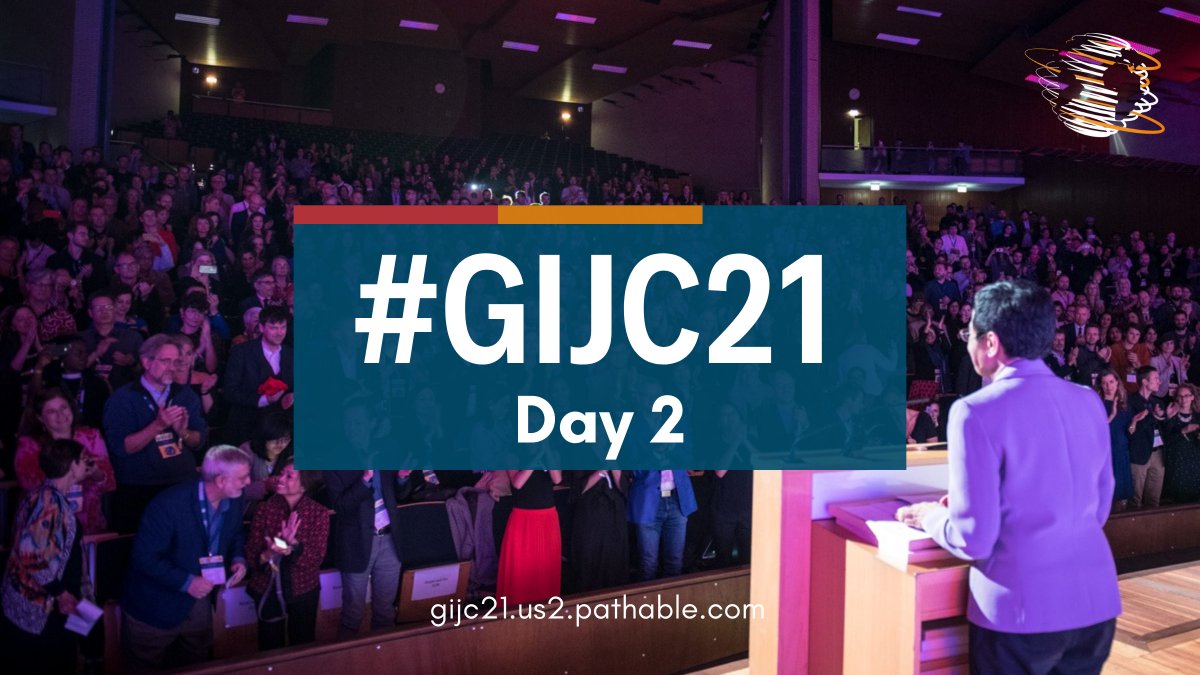🎉 Welcome to Day 2 of the Global Investigative Journalism Conference!
📣 Today is International Day to #EndImpunity for Crimes against Journalists.
👇 We mark this at #GIJC21 with an array of sessions on combating attacks on journalists and new tools for safety and security.
📣 Today is International Day to #EndImpunity for Crimes against Journalists.
👇 We mark this at #GIJC21 with an array of sessions on combating attacks on journalists and new tools for safety and security.

Headlining a full track on journalist safety at #GIJC21, this panel assembles investigators, including @laurentrichard0, @kavithalankesh, @Jos_Bartman, @daddyhope, Roman Anin, and Deborah Nelson. They track down those behind attacks, spying, and harassment on the press. 

Climate change will be the story of the 21st century. @hans_nich, @margosmit1, @naberacka, and @gufalei, offer tips on how to follow the money, methane, and maneuvers of embedded interests. 

This session with expert investigators @malachybrowne, @singhvianjali, and @muyixiao will give you an inside look at the extraordinary work by @nytimes' pioneering Visual Investigations team. 

Leading data journalists @branthouston, @gianninasegnini, @j_la28, and @kuangkeng look at what’s coming, from AI to advanced social media analysis. 

This exciting panel of reporters and producers showcases how to use powerful audio storytelling for projects around the world. Come and hear from podcast experts @liu_chihhsin, @s_reber, @ramseygeorge, and @tajatop. 

• • •
Missing some Tweet in this thread? You can try to
force a refresh













